Oracle is a relational database management system from Oracle. The system has good portability, easy use, and strong functions. It is suitable for all types of large, medium, and small computer environments. It is a highly efficient system. , a database solution with good reliability and adaptability to high throughput.

The operating environment of this article: Windows 7 system, Dell G3 computer, Oracle 11g version.
What is oracle database?
Oracle Database
Oracle Database, also known as Oracle RDBMS, or Oracle for short. It is a relational database management system from Oracle Corporation. It is a product that has always been in the leading position in the database field. It can be said that the Oracle database system is a popular relational database management system in the world. The system has good portability, easy use, and strong functions. It is suitable for various large, medium, and small computer environments. It is a database solution that is efficient, reliable and adaptable to high throughput.
System Introduction
ORACLE database system is a set of software products with distributed database as the core provided by the American ORACLE company (Oracle). It is the most popular customer/ Server (CLIENT/SERVER) or one of the databases in B/S architecture. For example, SilverStream is a kind of middleware based on database. ORACLE database is the most widely used database management system in the world. As a general database system, it has complete data management functions; as a relational database, it is a complete relational product; as a distributed database, it implements distributed processing functions. But all its knowledge, as long as you learn ORACLE knowledge on one model, you can use it on various types of machines.
The latest version of Oracle database is Oracle Database 20c. Oracle Database 12c introduces a new multi-tenant architecture that makes it easy to deploy and manage database clouds. In addition, some innovative features can maximize resource utilization and flexibility, such as Oracle Multitenant to quickly integrate multiple databases, while Automatic Data Optimization and Heat Map can compress and tier data with higher density. These unique technology advancements, coupled with major enhancements in availability, security and big data support, make Oracle Database 12c an ideal platform for private and public cloud deployments.
Features
1. Complete data management functions:
1) Large amount of data
2) Storage of data Durability
3) Data sharing
4) Data reliability
2. Complete relationship products:
1) Information criteria ---All information in relational DBMS should be logically expressed in a way, that is, the values in the table are explicitly expressed;
2) Guidelines for ensuring access
3) View Update criteria---as long as the data in the table forming the view changes, the data in the corresponding view changes at the same time
4) Data physical and logical independence criteria
3. Distributed Processing functions:
ORACLE database has provided distributed processing capabilities since the 5th edition. By the 7th edition, it has relatively complete distributed database functions. An ORACLE distributed database consists of oracledbms, sql*Net , SQL*CONNECT and other non-ORACLE relational products.
4. Data warehouse operations can be easily implemented using ORACLE.
This is a technological development trend and will not be discussed here.
Advantages
■ Strong availability
■ Strong scalability
■ Strong data security
■ Strong stability
Related recommendations: oracle database learning tutorial
The above is the detailed content of What database is oracle?. For more information, please follow other related articles on the PHP Chinese website!
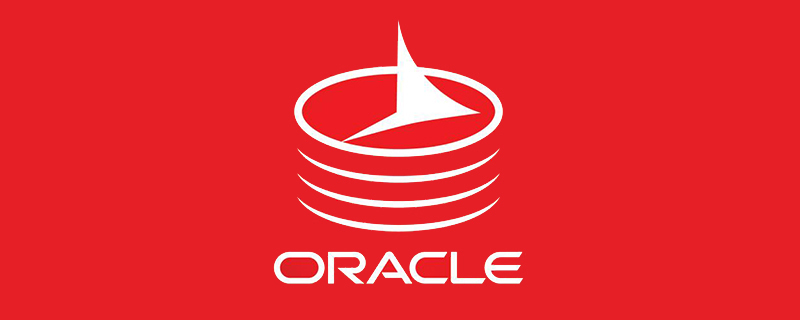 什么是oracle asmApr 18, 2022 pm 04:16 PM
什么是oracle asmApr 18, 2022 pm 04:16 PMoracle asm指的是“自动存储管理”,是一种卷管理器,可自动管理磁盘组并提供有效的数据冗余功能;它是做为单独的Oracle实例实施和部署。asm的优势:1、配置简单、可最大化推动数据库合并的存储资源利用;2、支持BIGFILE文件等。
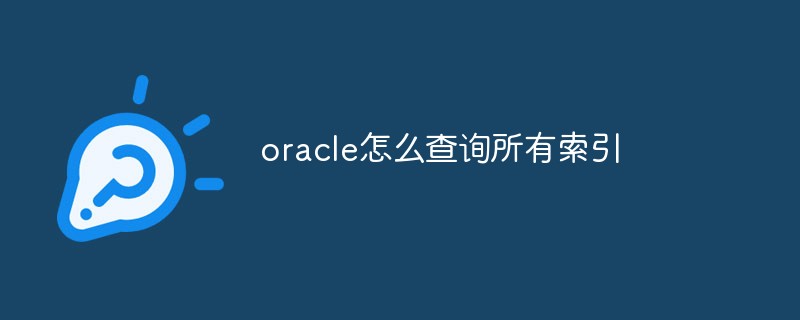 oracle怎么查询所有索引May 13, 2022 pm 05:23 PM
oracle怎么查询所有索引May 13, 2022 pm 05:23 PM方法:1、利用“select*from user_indexes where table_name=表名”语句查询表中索引;2、利用“select*from all_indexes where table_name=表名”语句查询所有索引。
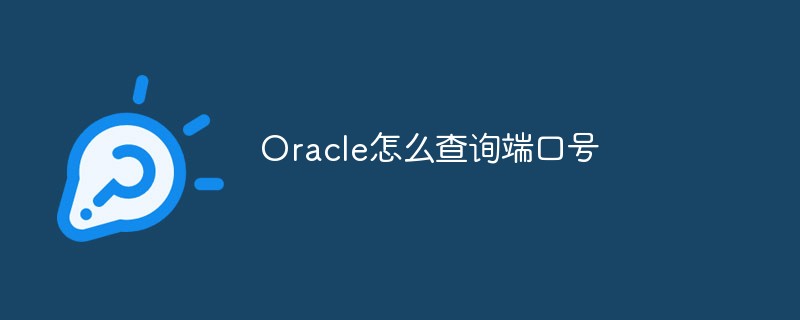 Oracle怎么查询端口号May 13, 2022 am 10:10 AM
Oracle怎么查询端口号May 13, 2022 am 10:10 AM在Oracle中,可利用lsnrctl命令查询端口号,该命令是Oracle的监听命令;在启动、关闭或重启oracle监听器之前可使用该命令检查oracle监听器的状态,语法为“lsnrctl status”,结果PORT后的内容就是端口号。
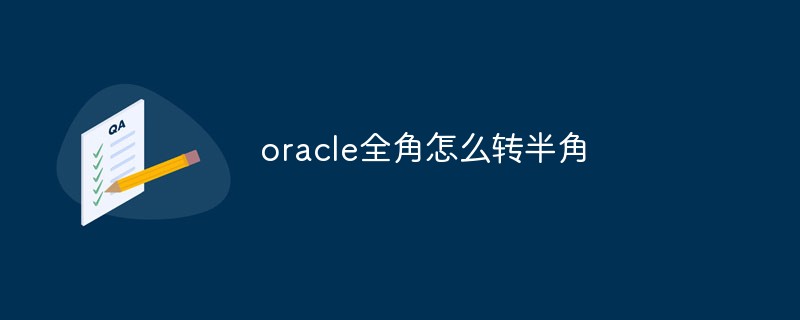 oracle全角怎么转半角May 13, 2022 pm 03:21 PM
oracle全角怎么转半角May 13, 2022 pm 03:21 PM在oracle中,可以利用“TO_SINGLE_BYTE(String)”将全角转换为半角;“TO_SINGLE_BYTE”函数可以将参数中所有多字节字符都替换为等价的单字节字符,只有当数据库字符集同时包含多字节和单字节字符的时候有效。
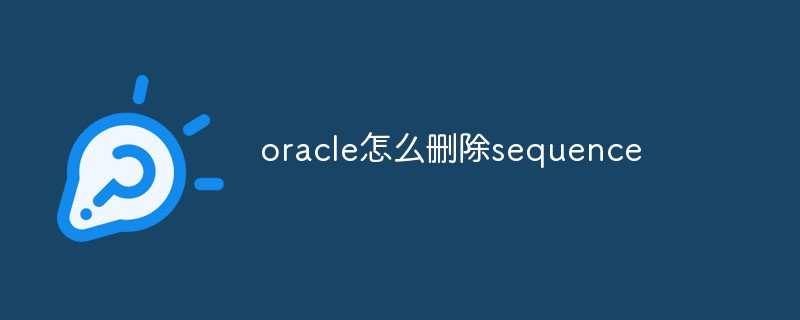 oracle怎么删除sequenceMay 13, 2022 pm 03:35 PM
oracle怎么删除sequenceMay 13, 2022 pm 03:35 PM在oracle中,可以利用“drop sequence sequence名”来删除sequence;sequence是自动增加数字序列的意思,也就是序列号,序列号自动增加不能重置,因此需要利用drop sequence语句来删除序列。
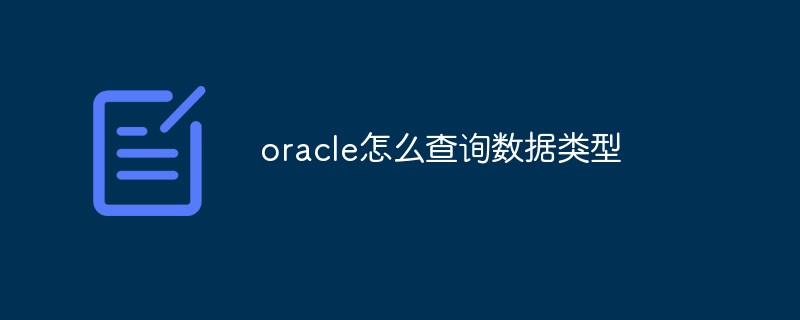 oracle怎么查询数据类型May 13, 2022 pm 04:19 PM
oracle怎么查询数据类型May 13, 2022 pm 04:19 PM在oracle中,可以利用“select ... From all_tab_columns where table_name=upper('表名') AND owner=upper('数据库登录用户名');”语句查询数据库表的数据类型。
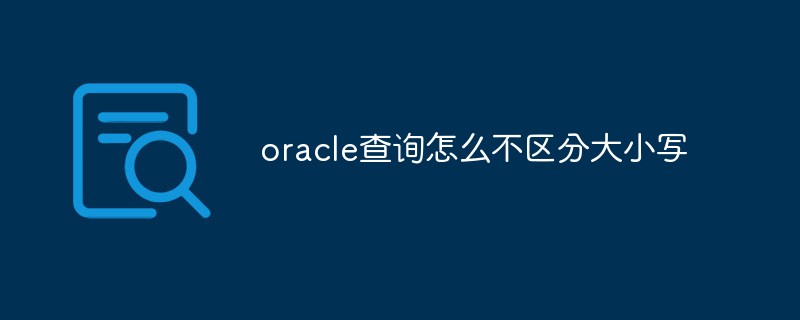 oracle查询怎么不区分大小写May 10, 2022 pm 05:45 PM
oracle查询怎么不区分大小写May 10, 2022 pm 05:45 PM方法:1、利用“LOWER(字段值)”将字段转为小写,或者利用“UPPER(字段值)”将字段转为大写;2、利用“REGEXP_LIKE(字符串,正则表达式,'i')”,当参数设置为“i”时,说明进行匹配不区分大小写。
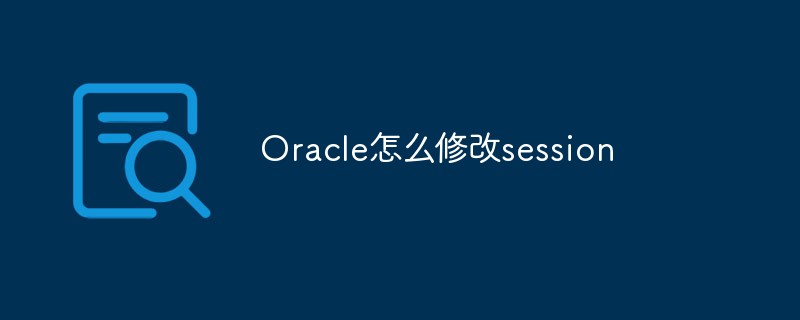 Oracle怎么修改sessionMay 13, 2022 pm 05:06 PM
Oracle怎么修改sessionMay 13, 2022 pm 05:06 PM方法:1、利用“alter system set sessions=修改后的数值 scope=spfile”语句修改session参数;2、修改参数之后利用“shutdown immediate – startup”语句重启服务器即可生效。


Hot AI Tools

Undresser.AI Undress
AI-powered app for creating realistic nude photos

AI Clothes Remover
Online AI tool for removing clothes from photos.

Undress AI Tool
Undress images for free

Clothoff.io
AI clothes remover

AI Hentai Generator
Generate AI Hentai for free.

Hot Article

Hot Tools

SAP NetWeaver Server Adapter for Eclipse
Integrate Eclipse with SAP NetWeaver application server.

EditPlus Chinese cracked version
Small size, syntax highlighting, does not support code prompt function

Dreamweaver Mac version
Visual web development tools

Notepad++7.3.1
Easy-to-use and free code editor

VSCode Windows 64-bit Download
A free and powerful IDE editor launched by Microsoft






